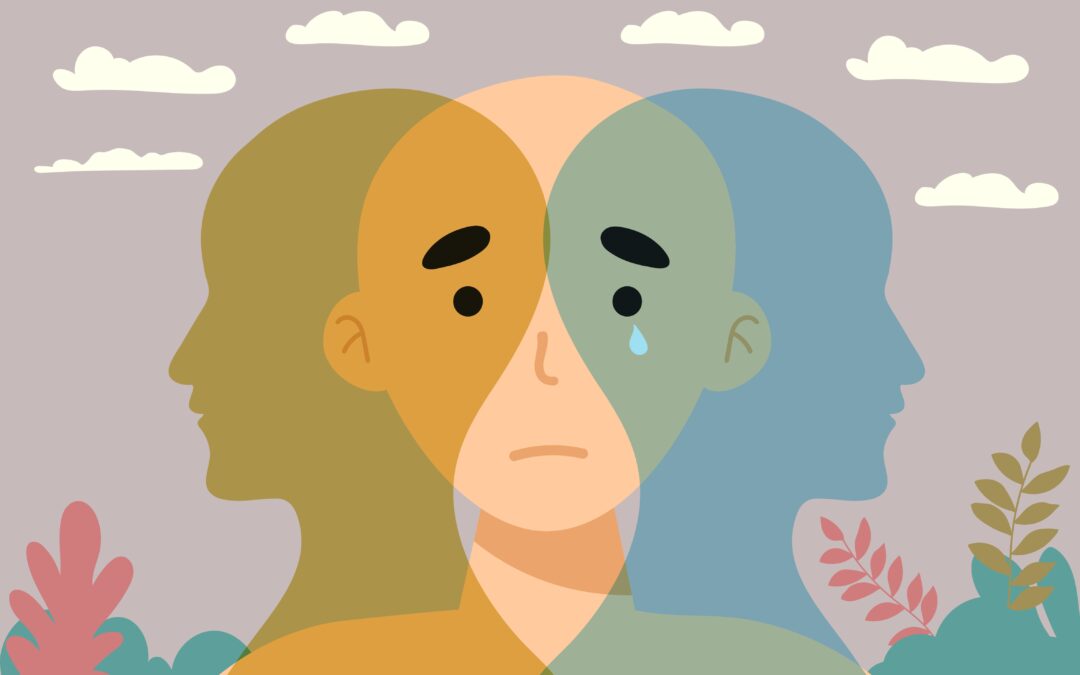The holiday season is often portrayed as a time of joy, celebration, and togetherness. However, for individuals in recovery from addiction and dual diagnosis, this time of year can bring unique challenges and triggers that can exacerbate symptoms and make the journey to sobriety more difficult. In this comprehensive article, we will explore how dual diagnosis symptoms can be exacerbated during the holidays, the specific challenges individuals face, and strategies to navigate this season while prioritizing mental health and recovery.
Understanding Dual Diagnosis
Dual diagnosis refers to the co-occurrence of a substance use disorder (SUD) and a mental health disorder. These conditions often interact and influence each other, complicating the recovery process. Common mental health disorders seen in dual diagnosis include depression, anxiety disorders, bipolar disorder, post-traumatic stress disorder (PTSD), and schizophrenia, among others.
Holiday Challenges for Individuals with Dual Diagnosis
The holiday season presents several unique challenges for individuals with dual diagnosis:
1. Increased Stress
The holiday season can be a time of heightened stress due to financial pressures, family dynamics, and the pressure to create a perfect holiday experience. Stress is a significant trigger for both substance use and mental health symptoms.
2. Loneliness and Isolation
While the holidays emphasize togetherness, many individuals with dual diagnosis may experience feelings of loneliness and isolation. The expectation to engage in social activities can be overwhelming, and the lack of a support system can exacerbate mental health symptoms.
3. Social Pressure
Social gatherings during the holidays often involve alcohol and other substances. For individuals in recovery, this can be particularly challenging, as they may feel pressure to partake in activities that jeopardize their sobriety.
4. Seasonal Affective Disorder (SAD)
Seasonal Affective Disorder is a type of depression that occurs seasonally, often during the winter months. It can worsen existing mental health symptoms, making it more challenging to manage dual diagnosis.
5. Memories and Triggers
The holidays are often associated with nostalgia and family gatherings, which can bring up painful memories and emotional triggers for individuals with dual diagnosis. These triggers can lead to cravings and substance use.
Impact on Dual Diagnosis Symptoms
The challenges of the holiday season can exacerbate dual diagnosis symptoms in several ways:
- Increased Substance Use: The availability of alcohol and other substances during holiday celebrations can lead to increased substance use, triggering relapse for individuals in recovery.
- Worsening Mental Health: Stress, isolation, and social pressure can exacerbate symptoms of depression, anxiety, and other mental health disorders, making it more challenging to manage these conditions.
- Disrupted Routine: The holiday season often disrupts daily routines, including therapy sessions, support group meetings, and medication schedules, which are crucial for managing dual diagnosis.
- Financial Strain: Financial stress during the holidays can lead to heightened anxiety and exacerbate symptoms of mental health disorders.
- Family Dynamics: Family gatherings can be emotionally charged and may bring to the surface unresolved conflicts or trauma, intensifying mental health symptoms.
Strategies for Navigating the Holidays with Dual Diagnosis
Despite the challenges, individuals with dual diagnosis can successfully navigate the holiday season with careful planning and support. Here are strategies to help:
1. Prioritize Self-Care
Self-care is essential during the holidays. Maintain a routine that includes regular exercise, healthy eating, and sufficient sleep. Engage in activities that bring you joy and relaxation.
2. Set Realistic Expectations
Avoid striving for a perfect holiday experience. Set realistic expectations for yourself and your family. It’s okay to say no to social gatherings that feel overwhelming.
3. Plan Ahead
If you’re in recovery, plan ahead for situations where substance use may be present. Bring a supportive friend or loved one with you to gatherings, have a non-alcoholic drink in hand, and have an exit plan if you feel uncomfortable.
4. Lean on Your Support System
Stay connected with your support system. Reach out to your therapist, counselor, or support group for guidance and emotional support. Don’t hesitate to ask for help when needed.
5. Practice Mindfulness
Mindfulness techniques, such as meditation and deep breathing exercises, can help you stay present and manage stress effectively. Practice these techniques to stay grounded during the holidays.
6. Set Boundaries
Communicate your boundaries to family and friends. Let them know what you’re comfortable with and what you’re not. Protect your sobriety and mental health by setting clear limits.
7. Avoid Triggers
Identify your triggers and take steps to avoid or manage them. This may involve excusing yourself from triggering conversations or finding a quiet space to regroup.
8. Stay Engaged
Stay engaged with your recovery program and therapy sessions, even if your routine is disrupted. These resources are vital for managing dual diagnosis symptoms during the holidays.
9. Seek Professional Help
If you find that your dual diagnosis symptoms worsen during the holidays, don’t hesitate to seek professional help. Therapists and counselors can provide additional strategies and support.
10. Practice Self-Compassion
Be kind to yourself. The holiday season can be challenging, and setbacks may occur. Instead of self-criticism, practice self-compassion and focus on your commitment to recovery.
Conclusion
The holiday season can be a trying time for individuals with dual diagnosis, as it brings unique challenges that can exacerbate symptoms and trigger relapse. However, with careful planning, support, and self-care, it is possible to navigate this season while prioritizing mental health and recovery. Remember that seeking help and leaning on your support system are signs of strength, and you are not alone in your journey. By implementing these strategies, individuals with dual diagnosis can protect their well-being and lay the foundation for a healthier, happier new year.
Talk to Someone Who’s Been There. Talk to Someone Who Can Help. Scottsdale Recovery Center® holds the highest accreditation (Joint Commission) and is Arizona’s premier rehab facility since 2009. Call 602-346-9142.

